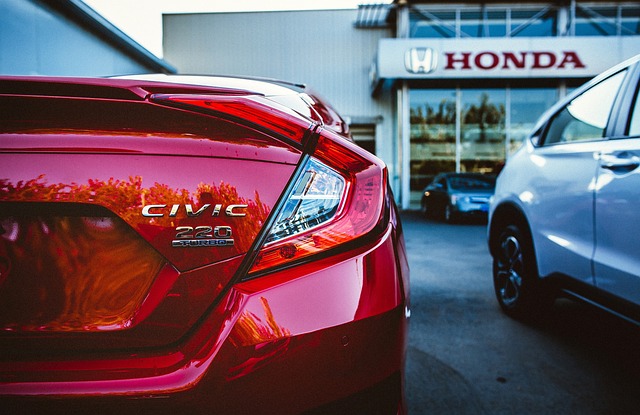Used Car Options: Types, Models, and Financing
The used car market offers a diverse range of vehicles to suit different needs, budgets, and preferences. From compact sedans perfect for city driving to robust SUVs designed for family adventures, understanding the available options helps buyers make informed decisions. With numerous automotive brands participating in the pre-owned market and innovative financing solutions like Buy Now Pay Later programs becoming more common, purchasing a used vehicle has become more accessible than ever before.

What Types and Models of Used Cars Are Available?
The used car market encompasses virtually every vehicle category manufactured in recent decades. Compact cars such as the Honda Civic, Toyota Corolla, and Nissan Sentra remain popular choices for first-time buyers and urban commuters due to their fuel efficiency and affordability. Mid-size sedans like the Honda Accord, Toyota Camry, and Chevrolet Malibu offer more space and comfort while maintaining reasonable operating costs.
For families requiring additional space, SUVs and crossovers dominate the used market. Three-row vehicles such as the Toyota Highlander, Honda Pilot, and Chevrolet Traverse provide seating for seven or eight passengers. Smaller crossovers like the Mazda CX-5, Subaru Outback, and Ford Escape offer elevated seating positions with improved fuel economy compared to larger SUVs.
Pickup trucks represent another significant segment, with models ranging from compact options like the Toyota Tacoma and Chevrolet Colorado to full-size trucks such as the Ford F-150, Chevrolet Silverado, and Ram 1500. Luxury vehicles from brands like BMW, Mercedes-Benz, Audi, and Lexus also enter the used market, often providing premium features at more accessible price points than their original retail values.
Which Brands Are Available in the Used Car Market?
Nearly every automotive manufacturer contributes vehicles to the used car market, creating extensive brand diversity for potential buyers. Japanese brands including Toyota, Honda, Nissan, Mazda, and Subaru consistently rank among the most sought-after options due to their reputation for reliability and longevity. These vehicles often retain strong resale values and have lower maintenance costs over time.
American manufacturers such as Ford, Chevrolet, GMC, and Dodge offer a wide selection of used vehicles, particularly in the truck and SUV segments. These brands frequently provide more affordable entry points into vehicle ownership while offering robust performance capabilities.
European brands including Volkswagen, BMW, Mercedes-Benz, Audi, and Volvo present opportunities for buyers seeking premium features and engineering. While these vehicles may require higher maintenance costs, they often include advanced safety technologies and luxury amenities that were cutting-edge when new.
South Korean manufacturers like Hyundai and Kia have gained significant market presence, offering used vehicles with comprehensive warranty coverage that may still be active on newer pre-owned models. These brands typically provide excellent value propositions with modern features and competitive pricing.
Do These Brands Offer Buy Now Pay Later Options?
Buy Now Pay Later financing has expanded beyond traditional retail purchases into the automotive sector, though availability varies significantly among brands and dealerships. Several automotive financing companies and third-party providers now offer deferred payment options for used car purchases, allowing buyers to drive immediately while spreading payments over extended periods.
Some manufacturer-certified pre-owned programs include flexible financing arrangements that function similarly to Buy Now Pay Later systems. These programs may offer deferred first payments, graduated payment schedules, or seasonal payment adjustments to accommodate buyers’ financial situations.
Third-party financing companies specializing in automotive purchases have developed partnerships with dealerships to provide alternative payment structures. These arrangements often include minimal or no down payment requirements, extended payment terms, and flexibility in payment timing that appeals to buyers who may not qualify for traditional auto loans.
However, buyers should carefully evaluate the terms and conditions of any Buy Now Pay Later automotive financing. Interest rates, fees, and total cost of ownership may differ significantly from conventional auto loans, potentially resulting in higher overall expenses despite the initial payment flexibility.
| Financing Option | Provider Type | Typical Terms | Key Features |
|---|---|---|---|
| Traditional Auto Loan | Banks/Credit Unions | 3-7 years | Fixed payments, competitive rates |
| Manufacturer Financing | Brand-specific lenders | 2-8 years | Promotional rates, certified pre-owned programs |
| Buy Now Pay Later | Third-party platforms | 6-60 months | Deferred payments, flexible schedules |
| Lease Takeover | Individual/Dealer | Remaining lease term | Lower upfront costs, shorter commitment |
Prices, rates, or cost estimates mentioned in this article are based on the latest available information but may change over time. Independent research is advised before making financial decisions.
The used car market continues evolving with technological advances and changing consumer preferences. Electric and hybrid vehicles are increasingly entering the pre-owned market as early adopters trade in their vehicles for newer models. This trend creates opportunities for environmentally conscious buyers to access alternative fuel technologies at reduced prices compared to new vehicle purchases.
Certified pre-owned programs offered by most major manufacturers provide additional peace of mind through extended warranties, thorough inspections, and quality guarantees. These programs bridge the gap between new and used vehicle purchases, offering newer models with remaining factory warranty coverage and additional protection against unexpected repairs.
Understanding the breadth of options available in the used car market enables buyers to make decisions aligned with their transportation needs, financial circumstances, and personal preferences. Whether seeking basic transportation, family-friendly features, or luxury amenities, the diverse selection of types, models, and brands ensures suitable options for virtually every buyer’s requirements.




